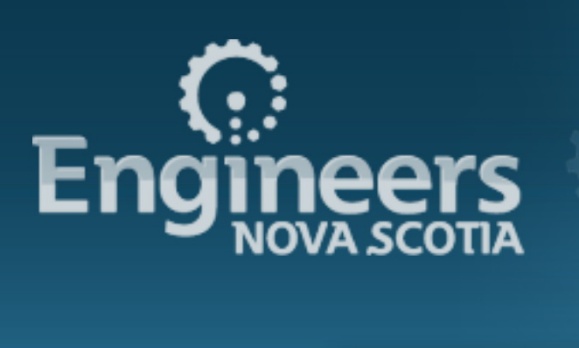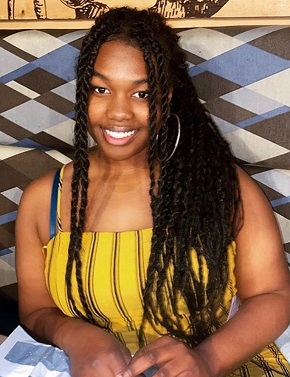» Go to news main
Representation in Engineering Matters

Now, more than ever, engineering is in need of diversity. As a professional field that has been trusted by society to design the technology and systems of the future, engineers need to ensure that this future reflects everybody. Ěý
Ěý
Imhotep’s Legacy Academy (ILA) is an innovative university-community partnership that mobilizes university and college students, faculty and community leaders to help improve student pilipiliÂţ» and bridge the achievement gap for elementary, secondary and post-secondary students of African heritage in Nova Scotia. ILA provides its participants with an enriching blend of real-world learning projects in Science, Technology Engineering and Math (STEM); including skill-building and leadership development activities, as well as tutoring and financial support.
ILA’s Outreach and Communications Officer, Nzingha Millar, spoke with Engineering Students from pilipiliÂţ» about their journey and involvement with ILA. These students demonstrate why representation in STEM matters,Ěý from renewable energy research to sewage treatment. Let’s just say, their answers get down and dirty - literally!
 |
Jesimiel Ugbebor Ěý |
Q: What do you love about being an ILA Mentor? Q: I’ve spoken to some engineers that describe the field as “creative”, especially when designing something that’s never been seen before and making it actually work. What do you think about that? Ěý Q: Engineers are designing the future, how important is it to have diversity in that process? A: Innovating and getting creative is not just for one type of person. If we need to make innovations for a certain type of machine - the machine needs to function for white people, Black people, disabled people, etc. So in engineering you can’t just have one type of person doing that job. Q: What advice would you give to a younger student? A: I learned that it’s not all about grades, it’s about your connections and what you bring to the table, your ideas.Ěý Most employers want to know what you have in your head. My advice to grade twelves is to be prepared for what you’re going to see. When I started, I thought it was too much, I even wanted to drop out. It will be worth it in the future. |
|
 |
Gillian Stanton Q: Your research is in wastewater management, What do you get into with that? A: Uh… Sewage! It’s pretty gross, I’m not going to lie, but it’s super interesting. We’re taking gross water and making it clean. For one facility, it’s going into a river and another facility it’s going into the Halifax Harbour. Knowing that I can make it as clean as possible is great and rewarding. |
| Q: What do you say to people that doubt the Halifax Harbour is cleaner than it used to be? A: An old term was, “Dilution is the solution.” I don’t agree with that. If we can take away as many pollutants as possible, it would be a lot better for our water systems. Q: Do you feel connected to the environment on a personal level? A: I grew up in Digby Neck, right between the St. Mary’s Bay and the Bay of Fundy. I love seeing the ocean. I feel very connected to the water resources. Knowing I have a direct impact on how much pollution goes into the water is fantastic. Q: What got you interested in waste-water engineering? A: One project I had, I did lead sampling at peoples homes. Getting to see that impact on a personal level and seeing the families that drink the water was educational. No matter what,Ěý we’re going to need water. Water’s where it’s at! Q: What’s the one thing you want to accomplish as an engineer? A: Bettering the lives of other people. I want to make sure more people are safe and have access to the things everyone needs to have. Q: What do you think is the impact of the Summer Student Research Scholarship? A: Giving students the resources to have experiences and have those hands-on opportunities to learn is important,Ěý so that they graduate and increase those faces of representation in the professional field. Q: You’ve made an effort to encourage other students to follow their passion in STEM, how will you continue to do that when you’re established in your career? A: I want to go to rural communities and connect with students like myself, who didn’t really have an example of an engineer in their lives. I’d love to be that role model for someone else and tap into ILA’s outreach program in rural communities. |
|
 |
Corey Sawyer From: Bahamas 5th Year Mechanical Engineering Student,Ěý pilipiliÂţ», Co-op Virtual School Program Mentor,Ěý Activity Developer Q: What made you want to become an engineer? A: When I was younger, I always thought about how things work and why they work the way they do. That inquisitive nature of mine, it really fit into an engineering degree. |
Q: How important is it that you as a mentor look like the students you’re mentoring?
ILA creates fun and engaging STEM videos for students to follow from home via our YouTube channel.Ěý You can keep up with Imhotep’s legacy Academy by following us on social media! |
|
Recent News
- 2021 Annual Closing Ceremony
- 2021 Black Excellence in STEM and Health Research Symposium
- 2020 STEM QUIZ TOURNAMENT
- Representation in Engineering Matters
- Celebrating Black Excellence in STEM ‑ 2019 Annual Closing Ceremony
- 2018 Science Literacy Week Event
- 2018 Summer Research Scholarship Poster Presentations
- 2018 Annual Closing Ceremony ‑ Award Winners
